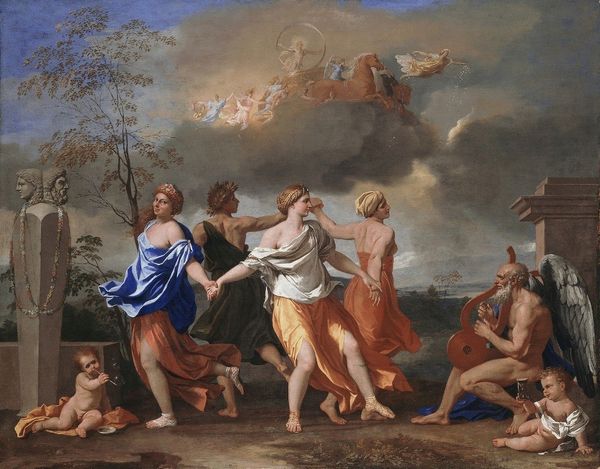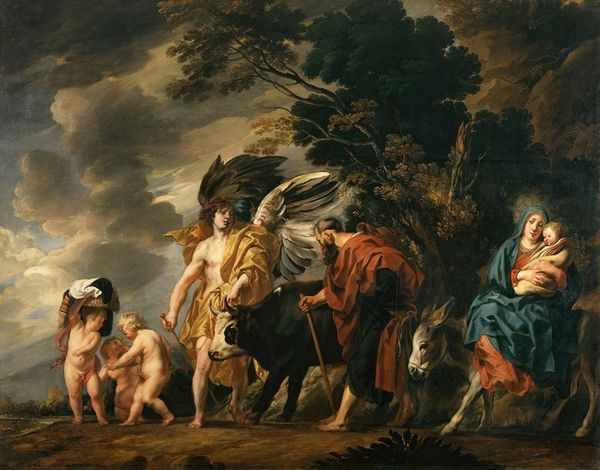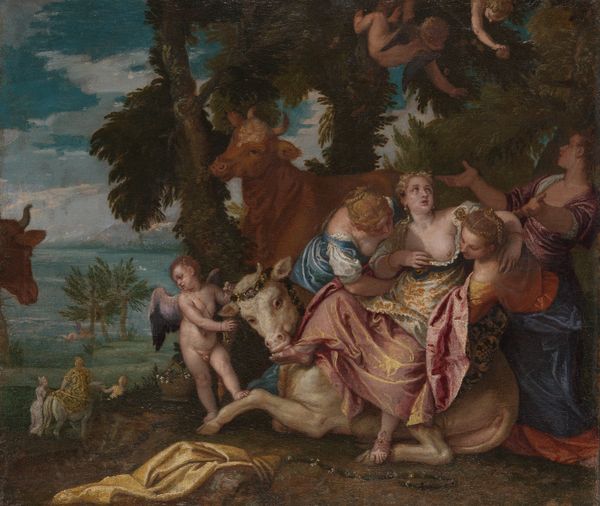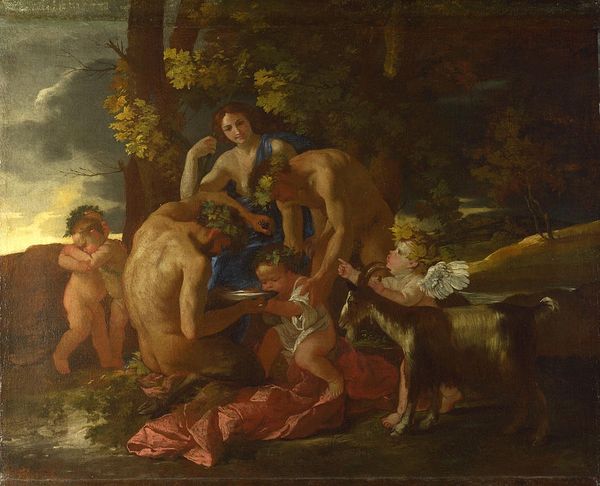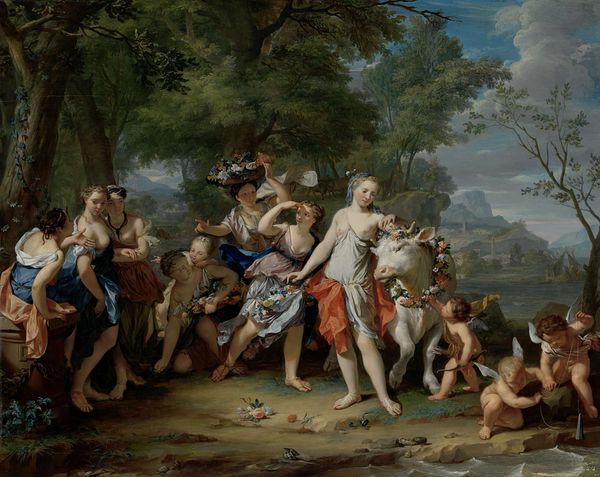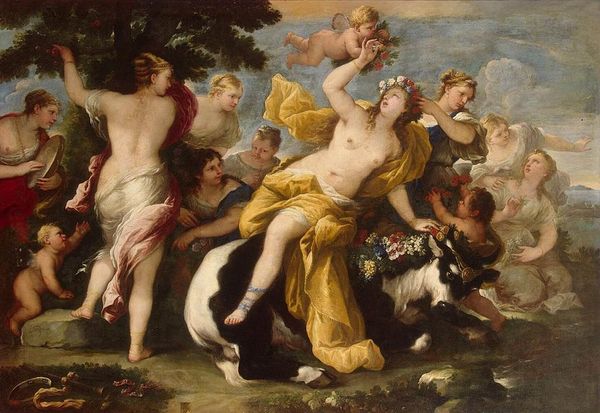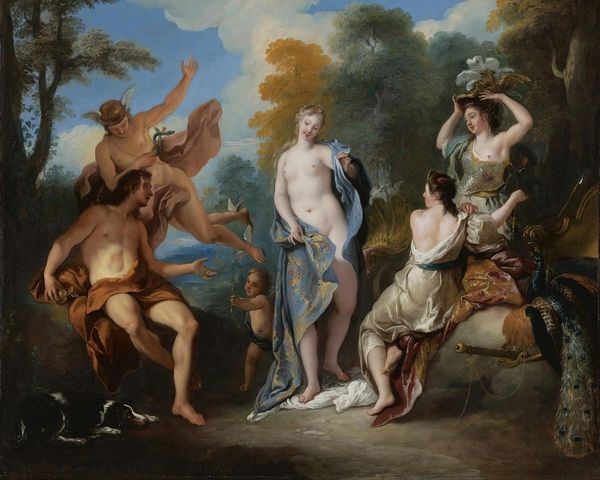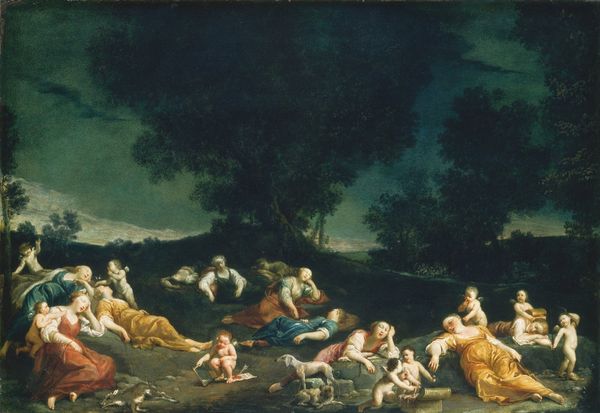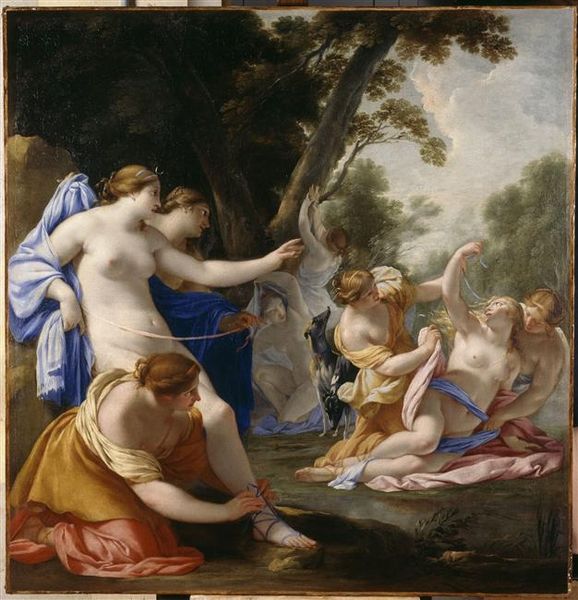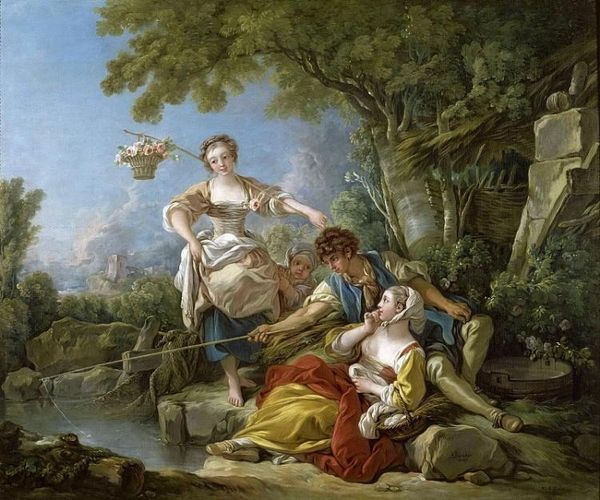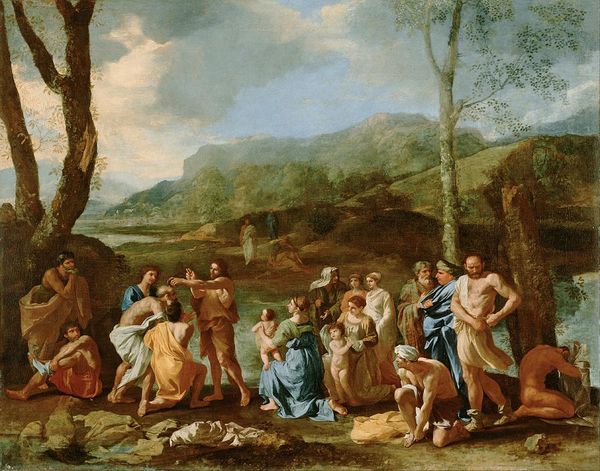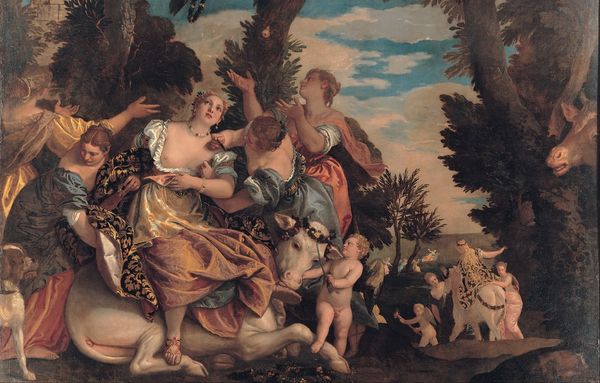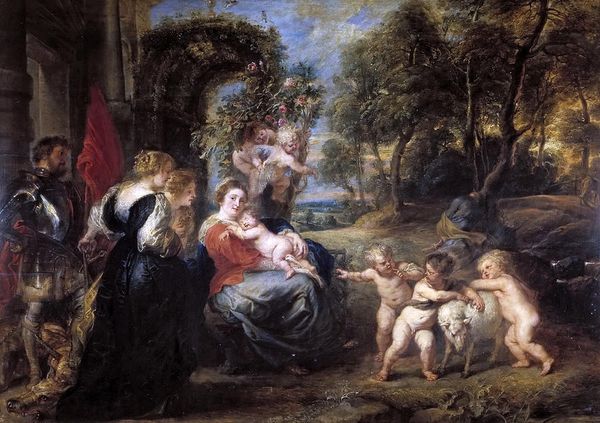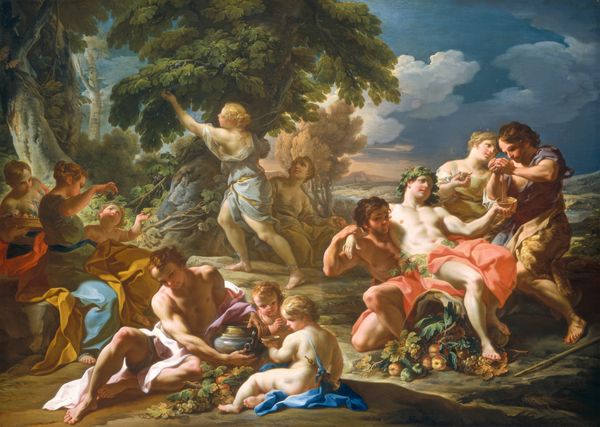
oil-paint
#
venetian-painting
#
allegory
#
fantasy art
#
oil-paint
#
oil painting
#
roman-mythology
#
mythology
#
history-painting
#
italian-renaissance
#
nude
Dimensions: 240 x 303 cm
Copyright: Public domain
Curator: Editor: This is Paolo Veronese's "The Rape of Europa" from 1578, created with oil paint. It strikes me as quite dreamlike, almost theatrical, with these figures posed so dramatically in this lush landscape. What do you see in this piece? Curator: Beyond the immediate visual splendor, consider the loaded history behind the term "rape" in the title. How does Veronese grapple with representing abduction and power dynamics in 16th-century Venice, a society deeply stratified by gender and class? Editor: I hadn't thought about the term "rape" in that historical context. So, it's not just about the visual narrative but also about unpacking the power structures it reflects? Curator: Precisely. The painting invites us to question whose perspective dominates: Europa's, Zeus's, or the male gaze of the intended audience? How does the abundance of nudes contribute to this? What commentary, if any, is Veronese making? Is he critiquing, celebrating, or simply perpetuating existing norms? Editor: It's uncomfortable to think that the beauty might be masking something violent and oppressive. The cupids almost seem to trivialize what's happening. Curator: That tension between beauty and brutality is key. The painting forces us to confront the ways in which mythology has historically normalized violence against women. The "fantasy art" tag almost seems like a misnomer in that respect, because this sort of imagery has had very real consequences. Does that change your view of the painting at all? Editor: Absolutely. It's no longer just a mythological scene; it's a lens through which to examine historical and ongoing issues of consent and power. I never thought a painting like this could hold so much. Curator: Art is always in conversation with the present, inviting us to critically examine the past and challenge the status quo. Editor: Thanks! It's been helpful to delve into these deeper issues within what initially appeared to be simply a mythological scene.
Comments
No comments
Be the first to comment and join the conversation on the ultimate creative platform.
